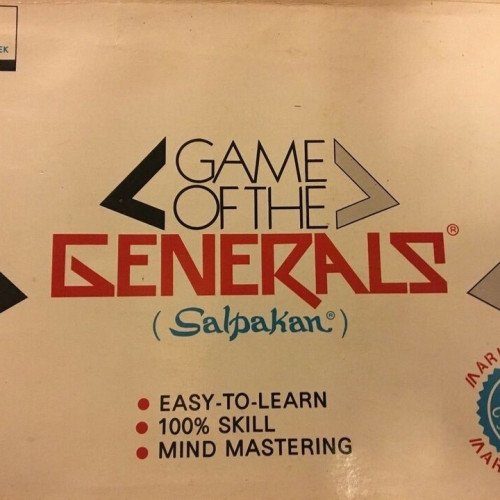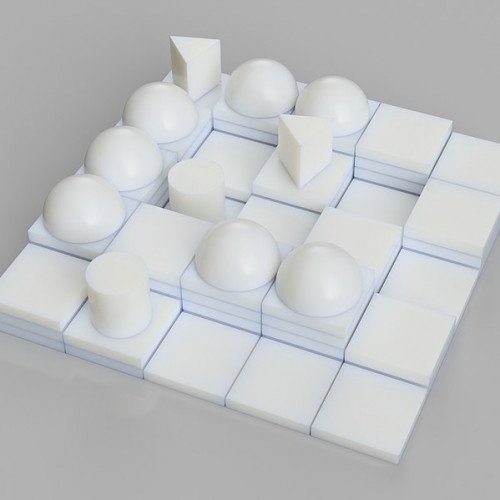GAME OF THE GENERALS VS SANTORINI

GAME OF THE GENERALS
The Game of the Generals, also called GG or GOG as it is most fondly called, or simply The Generals, is an educational war game invented in the Philippines by Sofronio H. Pasola Jr. in 1970. Its Filipino name is "Salpakan." It can be played within twenty to thirty minutes. It is designed for two players, each controlling an army, and a neutral arbiter (sometimes called a referee or an adjutant) to decide the results of "challenges" between opposing playing pieces, that like playing cards, have their identities hidden from the opponent. The game simulates armies at war trying to overpower, misinform, outflank, outmaneuver, and destroy each other. It optimizes the use of logic, memory, and spatial skills. It simulates the "fog of war" because the identities of the opposing pieces are hidden from each player and can only be guessed at by their location, movements, or from the results of challenges. The game allows only one side's plan to succeed, although a player may change plans during the course of the game. In addition, there are two different ways of winning the game (see below). Certain strategies and tactics, however, allow both sides the chance of securing a better idea of the other's plan as the game progresses. Players can also speak or gesture to their opponents during matches, hoping to create a false impression about the identity of their pieces or their overall strategy. This game was invented by Sofronio H. Pasola, Jr. with the inspiration of his son Ronnie Pasola. The Pasolas first tried the Game of the Generals on a chessboard. Even then, the pieces had no particular arrangement. There were no spies in the experimental game; but after Ronnie Pasola remembered the James Bond movies and Mata Hari, he added the Spies. Making the pieces hidden was the idea of the Pasolas after remembering card games. The Game of the Generals' public introduction was on February 28, 1973. After the game was made, it angered many Filipino chess players thinking that Pasola was trying to denigrate or supplant chess.
Statistics for this Xoptio

SANTORINI
Santorini is an abstract strategy board game for 2-4 players designed and released in 2004 by Gordon Hamilton and republished via Kickstarter in 2016 by Roxley Games. Inspired by the architecture of cliffside villages on Santorini Island in Greece, and primarily designed for two players, the game is played on a grid where each turn players build a town by placing building pieces up to three levels high. To win the game, players must move one of their two characters to the third level of the town. Each turn of play involves moving one of your two pieces around a 5-by-5 grid each turn and then placing a tile adjacent to the moved piece, building up that spot of the board. On subsequent turns, pieces may be moved onto one of these built-up tiles, but only one level up at a time. Pieces may also be moved down any number of levels. Players may also place a special dome tile on top of a three-level building, which prevents a player from moving onto that spot for the remainder of the game. The primary winning condition is to get one of your pieces onto the third level, though players may also win if their opponent is unable to make a move. The Roxley Games version of Santorini introduced a god powers variant, which gives each player a unique way to break the rules. After being directly released and sold by Hamilton in 2004, Roxley Games ran a Kickstarter campaign during March-April 2016, drawing over 7,100 backers and raising over C$700,000, the most successful Kickstarter campaign ever based in Alberta. While the original release used plain white blocks as components, the Roxley version featured an enhanced cartoon-like look to the game, which Hamilton credits for success of the Kickstarter campaign. The game was released in retail outlets in January 2017.